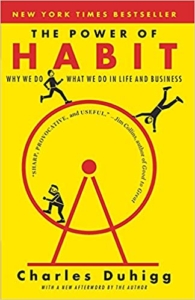I promised a blogpost about writing in community, and even though I’ve now been thinking about this post for a few days, I’m still not quite sure how to shape it.
So I’ll just tell you what I’ve been thinking.
Because I facilitate a writing group (The Writing Lab), which used to be closely associated with my college, and is still loosely associated with it, I frequently talk to people who are curious about our group, but don’t “get it.” I don’t write in groups, one faculty member told me (with a sort of sneer).
I’ve also met people who would like to join us, but “can’t” write in a group. It’s a solitary process for them, I guess. Someone said to me that there’s a reason knitting isn’t a team sport (except people do get together in knitting circles, right?). They would be willing to show up at the end and share their work, I’ve been told. One of these people added, “I think you would enjoy it.” I wasn’t sure how to take that.
The group, as it’s evolved, isn’t about entertaining one another. It’s more like holding our feet to the fire. We are writers, not having-writ-eners (?). (There are critique groups, to which one brings work in draft, of course, and they can be very useful.) Nothing new about this, as there are Natalie Goldberg Writing Down the Bones type groups all over the place.
We don’t write from prompts (we used to, and then we kind of went off in our own direction.) Our group is maybe a little like AA or Weight Watchers. Except instead of quitting alcohol or losing weight, we’ve made a commitment to get together and write. Some of us have made a specific commitment to write on a certain project (I now work only on poetry when I’m at Lab and this is slowly helping me to find my way toward a new manuscript). And even though the other members are receptive and never-critical and pleased in fact with almost everything, having made a commitment to them makes it easier to follow through on that commitment.
You don’t have to travel to belong to a group. Julia Cameron suggests contacting a friend (by email or text, or a quick phone message) to say “I’m going to write now,” and, later, to say “I wrote ____ words” or “____pages.” And there are lots of internet groups for people more technologically savvy than I am. But I like having actual people physically sitting at a table with me.
More than anything else, though, more than sitting at the table even, is the belief that we share: the belief that writing is valuable, that it is worth doing.
“If you believe you can change — if you make it a habit — the change becomes real. This is the real power of  habit: the insight that your habits are what you choose them to be. Once that choice occurs — and becomes automatic — it’s not only real, it starts to seem inevitable, the thing, as [William] James wrote, that bears ‘us irresistibly toward our destiny, whatever the latter may be.’
habit: the insight that your habits are what you choose them to be. Once that choice occurs — and becomes automatic — it’s not only real, it starts to seem inevitable, the thing, as [William] James wrote, that bears ‘us irresistibly toward our destiny, whatever the latter may be.’
“The way we habitually think of our surroundings and ourselves create the world that each of us inhabit.”
–Charles Duhigg, The Power of Habit (273)
By the way, once Duhigg got to William James, he had completely won me over. You could read just the Afterward and Appendix and be inspired (though I think you would then be inspired to read the whole book).
And, please notice, I wouldn’t have written this post at all, had I not promised it to you, dear community of blog-readers. Having a community supporting any goal is a gift.
 My post yesterday sounded a little…judgmental. I love our small group at Writing Lab, and though I can imagine a few people more in it, for the most part, I like that we’ve stayed small. There’s time to write, and to share work at the end, because of our size.
My post yesterday sounded a little…judgmental. I love our small group at Writing Lab, and though I can imagine a few people more in it, for the most part, I like that we’ve stayed small. There’s time to write, and to share work at the end, because of our size.

 habit: the insight that your habits are what you choose them to be. Once that choice occurs — and becomes automatic — it’s not only real, it starts to seem inevitable, the thing, as [William] James wrote, that bears ‘us irresistibly toward our destiny, whatever the latter may be.’
habit: the insight that your habits are what you choose them to be. Once that choice occurs — and becomes automatic — it’s not only real, it starts to seem inevitable, the thing, as [William] James wrote, that bears ‘us irresistibly toward our destiny, whatever the latter may be.’

